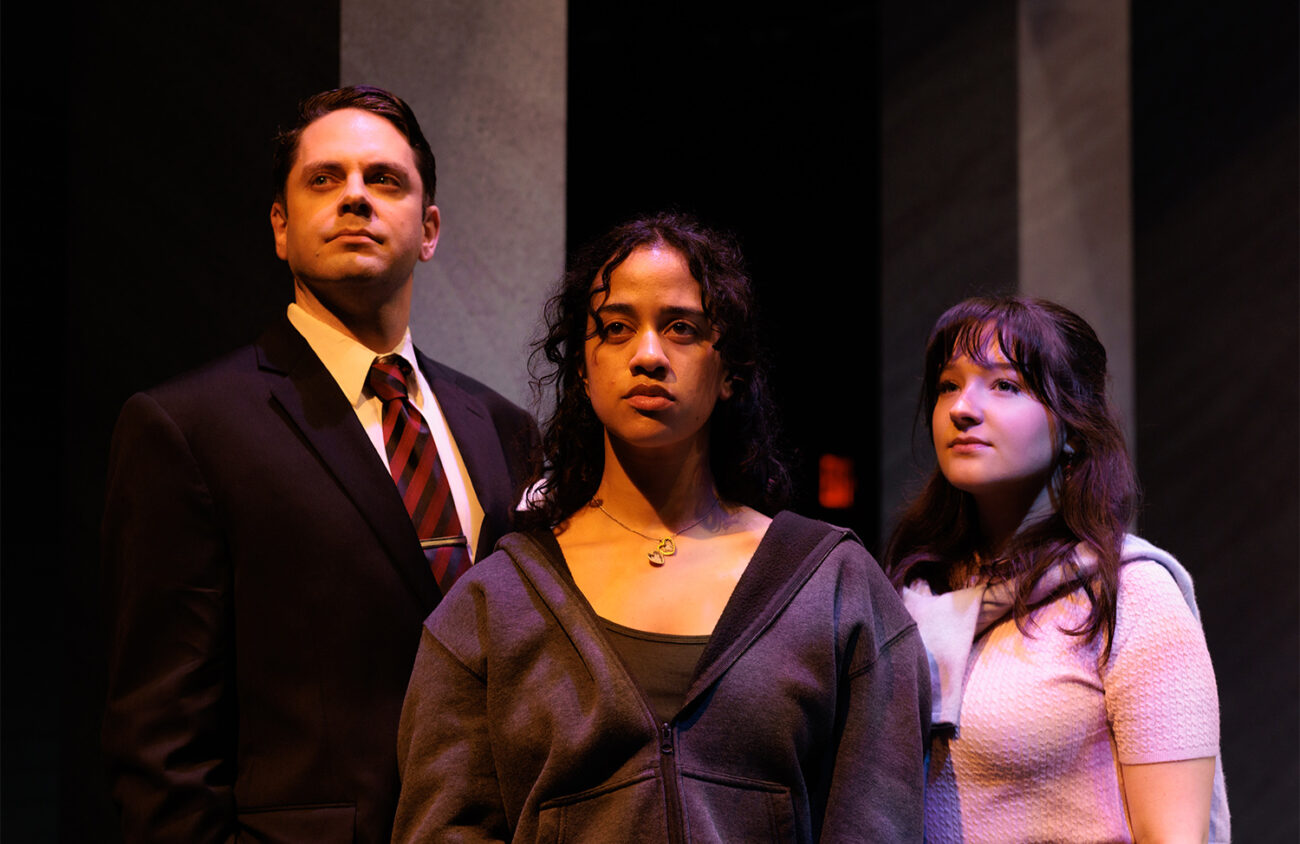Antigone, written by Sophocles around 441 BCE, is considered to be one of the most produced ancient Greek tragedies. Nevertheless, it’s not something you can see very frequently, even in a university town. Luckily, it’s now running at the University of Oregon’s Hope Theatre in an innovative, one-hour and 15-minute version astutely directed by Tara Wibrew. The compelling translation is by the renowned American poet David Slavitt.
The production, which blends scenery based on traditional Greek architecture with modern costumes and music, enables the audience to understand the play’s themes and relate to the characters’ conflicts as if they were occurring today.
The backstory in a nutshell: Creon, the ruler of Thebes, is the brother of Jocasta. After Jocasta and her husband Oedipus die in disgrace, Creon raises Oedipus’s children. The two sons of Oedipus fight on opposite sides of a civil war, killing each other on the same day. The brother who was loyal to Creon receives a funeral with honor. Creon orders that the other brother, Polynices, be left on the ground to rot, unburied, for all to witness.
This is horrific for Antigone, the brothers’ young sister. She tries to convince Creon to allow her to bury her brother, but he vows to kill her if she disobeys him. When she begs her sister Ismene for help, Ismene is fearful of breaking civil law. She clearly understands that women have no rights in Thebes. Why should they sacrifice their own lives when no good can come of it?
But Antigone persists, believing that the law of the gods, requiring people to bury their relatives, should supersede the law of humans. The chorus, representing the citizens of Thebes, recommends leniency on behalf of Antigone, but Creon is furious and unbending. He can’t let a mere woman influence him. Even when the blind prophet Tiresias, well played by Aidan Kent, berates Creon with fearful predictions, Creon loses control and viciously drives him away.
The well developed main characters are complex, contrary and alternately unpredictable or unexpectedly reasonable. Douglas Killingtree is riveting as Creon, which is actually the largest role. His dialogue could be spoken by any number of today’s politicians. Zayne Clayton as Antigone is convincingly torn as a young teen suffering the loss of both her brothers. Teddy Skyler as Haemon, Creon’s son and Antigone’s betrothed, is outstanding in his emotional defense of Antigone.
Ava Coffman-Luckcuck plays Ismene, and other roles are filled by Jesse Brown, Ray Cyphers, Quaye Dydasco, Anastacia Heffernan, Amy Marie Miller, Aaralyn Reed and Jared Reynolds.
The designers for Antigone are all students, and their work is impressive. The costume designs by Annika McNair include a striking dress for Creon’s wife that tightly wraps her slim body, indicating her complete lack of power. The set design by Aero Ankle, her first, is sophisticated, lovely and highly functional, allowing action to be seen from all sides.
